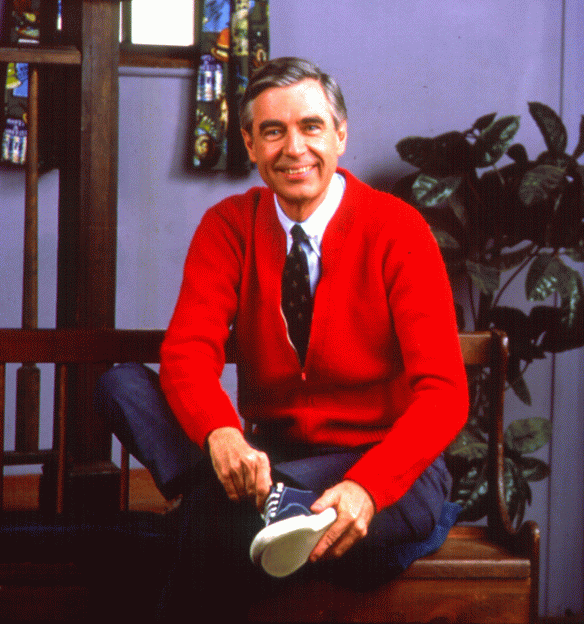Mr. Rogers' Neighborhood is more than just a children's television show; it is a cultural phenomenon that has touched the hearts of millions. Originally airing from 1968 to 2001, the show introduced generations of children to important life lessons in a gentle and understanding manner. This article delves into the legacy of Mr. Rogers, exploring key themes, memorable moments, and the enduring impact of Fred Rogers' message of kindness and acceptance.
In today's fast-paced world, where children's programming often prioritizes entertainment over education, Mr. Rogers' Neighborhood stands out as a beacon of hope and understanding. With its simple yet profound approach, the show encourages emotional intelligence, empathy, and community awareness. As we explore the various facets of this beloved series, we will uncover how Mr. Rogers' teachings remain relevant in our lives today.
Join us as we take a closer look at the life and philosophy of Fred Rogers, the man behind the iconic character, and how his legacy continues to inspire kindness and compassion in a world that often feels divided. From the show's inception to its lasting influence, this comprehensive article aims to celebrate the timeless appeal of Mr. Rogers' Neighborhood.
Table of Contents
- Biography of Fred Rogers
- Overview of Mr. Rogers' Neighborhood
- Key Themes in Mr. Rogers' Neighborhood
- Memorable Moments from the Show
- Cultural Impact of Mr. Rogers' Neighborhood
- The Legacy of Fred Rogers
- Conclusion
- Resources and Further Reading
Biography of Fred Rogers
Fred Rogers was born on March 20, 1928, in Latrobe, Pennsylvania. He was a gifted musician and an empathetic individual from a young age, often spending time with children and understanding their emotions. After completing his education at Rollins College, Rogers pursued a career in television, where he sought to create a program that would nurture children's emotional and moral development.
| Personal Data | Details |
|---|---|
| Name | Fred McFeely Rogers |
| Birth Date | March 20, 1928 |
| Birth Place | Latrobe, Pennsylvania, USA |
| Death Date | February 27, 2003 |
| Occupation | Television Host, Producer, Author |
| Notable Work | Mr. Rogers' Neighborhood |
Overview of Mr. Rogers' Neighborhood
Mr. Rogers' Neighborhood first premiered on February 19, 1968, on PBS. The show was designed to provide a safe space for children to explore complex emotions and understand the world around them. Fred Rogers' calm demeanor and gentle voice made him a trusted figure for children and parents alike. The show featured a mix of live-action segments, puppet characters, and field trips, all aimed at teaching valuable life lessons.
Format of the Show
The format of Mr. Rogers' Neighborhood included several recurring segments, such as:
- Visits to the Neighborhood of Make-Believe
- Musical performances
- Conversations with children and guests
- Exploration of everyday topics
Key Themes in Mr. Rogers' Neighborhood
Throughout its run, Mr. Rogers' Neighborhood covered a variety of themes that resonated deeply with children and adults alike. Some of the most significant themes include:
Emotional Intelligence
Fred Rogers emphasized the importance of recognizing and expressing emotions. He taught children that it is okay to feel sad, angry, or scared, and provided them with tools to cope with these emotions.
Acceptance and Diversity
The show celebrated diversity and inclusion, reinforcing the message that everyone is unique and worthy of love and respect. Rogers often addressed difficult topics, such as disability, death, and family dynamics, fostering understanding and compassion.
Memorable Moments from the Show
Mr. Rogers' Neighborhood is filled with unforgettable moments that have left a lasting impression on viewers. Some highlights include:
Meeting King Friday XIII
The interactions between Mr. Rogers and the puppet characters of the Neighborhood of Make-Believe, especially King Friday XIII, showcased the imaginative world Rogers created for children. These scenes encouraged creativity and storytelling.
The Arrival of Daniel Tiger
Daniel Tiger, a beloved puppet character, became a symbol of childhood emotions. His adventures taught children valuable lessons about friendship, sharing, and dealing with feelings.
Cultural Impact of Mr. Rogers' Neighborhood
The influence of Mr. Rogers' Neighborhood extends far beyond its years on air. The show has made a significant impact on children's television and education, inspiring countless programs that prioritize emotional well-being and learning.
Legacy in Modern Media
Today, many children's shows incorporate elements of emotional learning and empathy, following the blueprint laid out by Fred Rogers. His legacy can be seen in programs such as Sesame Street and Daniel Tiger's Neighborhood, which continue to promote kindness and understanding.
The Legacy of Fred Rogers
Fred Rogers' commitment to nurturing children's emotional and moral development has left an indelible mark on society. His messages of love, acceptance, and kindness continue to resonate with audiences of all ages. In recognition of his contributions, various honors and memorials have been established, ensuring that his legacy lives on.
Conclusion
Mr. Rogers' Neighborhood remains a cherished part of television history, embodying the principles of empathy, kindness, and understanding. Fred Rogers' gentle approach to addressing complex issues has made a lasting impact on generations of children and adults alike. As we reflect on the lessons learned from this iconic show, let us remember to carry forward the values of compassion and acceptance in our daily lives.
We invite you to share your thoughts on Mr. Rogers' Neighborhood and its impact on your life. Leave a comment below and let us know your favorite moments from the show or how it has influenced your perspective on kindness.
Resources and Further Reading
For those interested in exploring more about Fred Rogers and his philosophy, consider checking out the following resources:
Thank you for joining us on this journey through the world of Mr. Rogers. We hope you found this article informative and inspiring. We look forward to your next visit!


